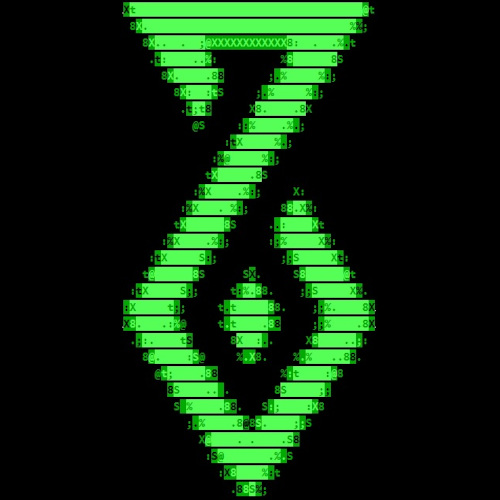I’m here with my GO board game wondering why everyone has a block of wood and pebbles…

Go / Wéiqí / Baduk is like the ocean, simple to understand near the shore, but unknowable and somewhat scary in it’s greatest depths.
Games on a 9x9 board are faster and may help during early learning.
Tsumego are small contained Go puzzles, where there is one ideal solution to be found. (Gobandroid or similar)
There is a massive amount of knowledge at this website:
https://senseis.xmp.net/?StartingPoints
(All available under the Open Content Licence)
It is a humbling game. I know nothing about Go.
There is an incredible book called The Master of Go by Yasunari Kawabata, a Nobel-winning Japanese author. It’s based on the true story of a master-level Go game that took six months.
I know that doesn’t sound very interesting, but trust me. It really is.
It is entirely unlike Go the programming language in that it is, in fact, a strategic board game, However, it may be possible to write a simple progam in ternary-encoded binary with the game pieces and board.
“but why would you use go? use rust, it’s blazingly fast and memory safe.”
I wanted to learn how to play after watching a few dozen episodes of Hikaru no Go, but it’s such an obtuse game. Chess I can understand, but Go has a level of strategy that my mind just can’t grasp.
That’s the great thing tho, the rules are very simple, anyone can pick up how to play. Then the strategy has so many layers that people can devote a lifetime of study to it, and it can become quite a psychological battle of wills between the two players in a way. But you can enjoy it right from the beginning without all that. And the handicap system means a game between players of very different skill can still be fun. Man I need to get back into playing go!
These were the group at college with the collective smell playing Magic: The Gathering. I suppose mild autism, or what used to be called Aspergers. Never disliked them, but they were certainly different. I’m likely somewhere on the spectrum, and not just because “it’s a spectrum”, but it didn’t quite manifest like that for me.
I used to play MTG and can confirm the places I played almost always had that stale sweat smell.
You know, I always associated dirty, smelly degenerates with magic until I started playing - (I validated that by being the dirty smelly degenerate 😉) it was interesting finding out that potentially due to the high cost of the decks, a good part of the playerbase actually really had their shit together. We’re talking engineers, pediatricians, lawyers etc. who could afford to throw $500 down on cardboard. Enough folks were married that my wife started calling the place “husband daycare”
Of course the smelly smell still made an appearance, I was able to determine if a particular person was in the local game store (LGS) by smell alone, the moment I walked into the store.
Are you saying they were oddballs who happened to play magic, or oddballs because they played magic?
I’m not sure how it could flow from the cards to the people, but I suppose they are magic. And there was usually a gathering. So anything is possible.
Gosh. Chess breaks my brain enough. I think I tried to tangle with Go for a bit after watching a doc about it but it was just too much for my feeble brain.
I’ve been following a series of tutorials by Go Magic. They have a YouTube channel! The videos are extremely well produced and explain things super well!
Edit: I grabbed a link
As others have mentioned, there’s online-go.com for similar to lichess.org.
On Android there’s Gobandroid, but it requires this for play against AI: https://f-droid.org/en/packages/org.ligi.gobandroidhd.ai.gnugo/
On desktop there’s Sabaki:
https://sabaki.yichuanshen.de/Haven’t tried Sabaki yet, as I was using GoGUI running off GNU Go for a long time, but it’s no longer in development.
Have you found the manga Hikaru no Go?
I haven’t found the manga but it was made into an Anime that’s on Hulu right now. I was thinking of watching it when I’m bored some day.
Newbies are often afraid or insulted to use “handicap” pieces, but the few free pieces given to a lower-rank player are actually quite effective at adjusting the balance with unevenly ranked players. It’s not a huge advantage and doesn’t fundamentally change the play of the game.
Using different sizes of board is also neat. I’m very fond of a short game using only a 9x9 board. Plays a lot faster, but trades strategy for a more tactical game.
I personally don’t like the experience of playing with more than 3-4 handicap stones. For the weaker player, every move it’s like “What is my opponent up to now? I am still ahead, I should just play safe.” and for the stronger player it’s like “How can I force my opponent to make mistakes?”. These thoughts are sometimes part of an even game but not as frequently.
What app should I download (on Android) if I want to try Go? There are a lot of them, and I have no idea where most of the playerbase is.
I was hoping someone would comment on this actually. Every android app I’ve tried has been riddled with ads to the point of being impossible to play.
If someone has a good one PLEASE let us both know!
Yes please! This was the obstacle that kept me from trying it a couple of weeks ago. Ideally I’d love to find the equivalent to chess.com (or lichess), but for Go.
Maybe one day I’ll get fed up and make one myself
Just adding a reply here to direct you to my other comment, which summarizes some of the options.
https://kbin.social/m/[email protected]/t/791813/-/comment/4808661
Thanks!
Why is that game named Five in Japanese if they have more than five pieces?
it is the number of people to ever have won the game
Lose your first several games quickly.
My main opponent right now is my boyfriend (who is also learning the game with me). Nothing we’ve done has been particularly quick in any sense.
letsgooo
It’s called Igo and it was invented in Korea. It has less unique pieces than compared to chess, yet is more complex than chess by a higher order of magnitude.
China actually! In 500ish BCE :D
The claim that it was invented in China is actually from baseless speculation from a flawed study published back in 1993 from a Chinese university tied to a government propaganda campaign and regurgitated in an essay posted in 2004 that someone cited on Wikipedia in 2014.
You’re both wrong. Given it’s combined age and complexity, there is only one rational explanation…

Do you have a source for that? I can’t find any information on it and every Go site lists China including the British Go Association
The British Go association is citing gobase.org which is registered in the Netherlands, who is citing a historian named H.J.R. Murray. who said he read a 1983 Watanabe Hideo book where that guy says he saw a picture of a Go board excavated in China back in 1954, that is not possible to correctly carbon date since there was no reports of that excavation having any evidence of organic material collected to properly carbon date and no one has any photographs nor records to inspect of the actual excavation.
You are literally relying on a Chinese university tied to the Chinese government telling you “trust me bro we invented this” without providing the public any factual info to investigate.
As opposed to your source which is… “Trust me bro.”
They asked for your source, not why theirs was wrong. You still haven’t provided one.
I’m literally going through all the citations that are available in Wikipedia and the links OP is posting. You want me to post that shit in a redundant unecessary way? Because that’s actually what I’m doing.
No, I want you to provide a source that says Go was invented in Korea. I also checked Wikipedia, and several other sites about Go, because you made me curious, since I had always heard it was invented in China.
Everything I’ve seen has said it was invented in China.
What’s YOUR source.
I mean, if you’re going to say that the name isn’t “go” (which is certainly a common English term for the game) AND that it was invented in Korea, then surely the name should be Baduk, the Korean term for it. Igo is the Japanese name. (and for what it’s worth, weiqi is the Chinese term.) Admittedly English-speakers mostly use Japanese terms for the game, like “atari,” “joseki,” “hane,” etc., but that’s more a historical accident than anything else.
The origin of the name given to the game “baduk” is controversial because no one can prove where it came from, and also the words “bat” and “dok” mean “flat stone” and is not a name, but rather a description.











